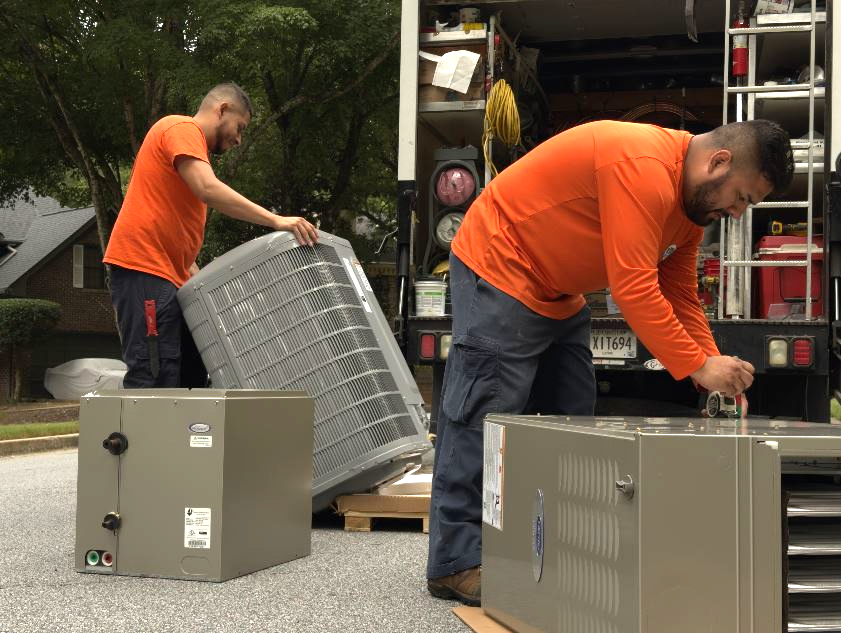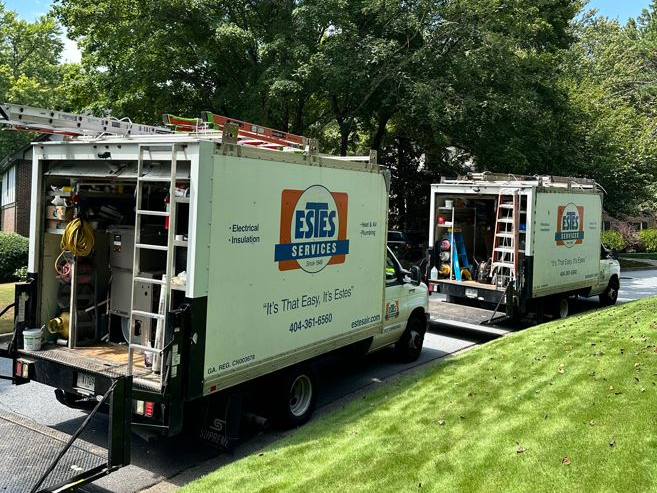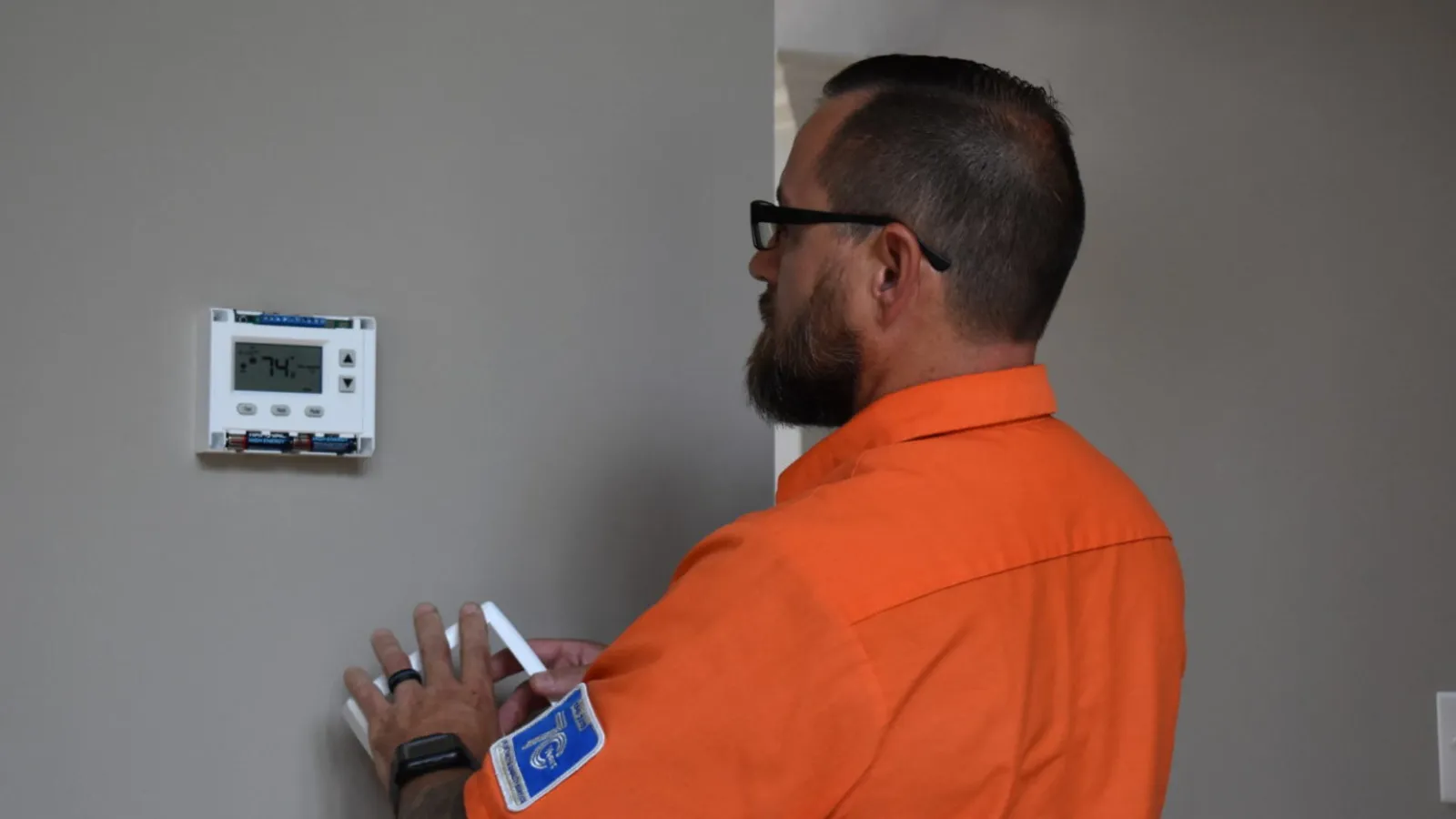Are you thinking about an air conditioning replacement near Atlanta, GA? If your unit is between 10 and 15 years old, it might be time to consider an upgrade. Industry standards suggest that the average lifespan of an air conditioning unit is around 15 years, and systems older than 10 years can lose up to 20% of their efficiency. This drop in performance can lead to higher energy bills and more frequent repairs, making your job more difficult.
If you're considering a replacement, you're in the right place. Let's explore the signs that indicate you may need a new system, why a replacement can be worth it, and the benefits a modern AC unit can bring to your property. It's that Easy; it's Estes!
When do you need to replace your HVAC system?

We understand that you're juggling numerous different responsibilities and tasks, so you may be wondering when you need to replace your HVAC system. Here are some common signs that indicate it's time for a replacement:
Age of System
Frequent Repairs
Rising Energy Bills
Inconsistent Temperatures
Strange Noises
Poor Indoor Air Quality
Frequent Cycling
Refrigerant Leaks
Visible Damage
If you're noticing any of these signs, it might be worth consulting with one of our licensed and trained HVAC technicians at Estes Services to assess your system and discuss your options. The longer you let these issues fester, the more serious of a problem it can become.
Is replacing AC worth it?
Replacing your system can be worthwhile if you face high repair costs or frequent issues with your current unit. Systems older than 10-15 years are likely to be less efficient and may not cool your property effectively, making a new, more energy-efficient model a better choice.
Newer systems can lower your energy bills and reduce environmental impact due to advancements in technology and eco-friendly refrigerants. Check out our Refrigerant Changes Starting in 2024 article to learn more about this refrigerant transition.
Additionally, if your current AC is noisy or inconsistent in cooling, a replacement might offer improved comfort and quieter operation. Moreover, a new system can come equipped with modern features like smart thermostats and enhanced air quality controls.
Ultimately, consulting with an HVAC professional can help you determine if air conditioning replacement is worth it for your specific needs.
Benefits of a New HVAC System
Upgrading to a new HVAC system can offer numerous advantages, enhancing both comfort and efficiency for your property. Here are some key benefits:
Improved Energy Efficiency: Modern HVAC systems are designed with advanced technology that significantly improves energy efficiency. With higher Seasonal Energy Efficiency Ratio (SEER) ratings, new systems consume less energy to achieve the same or better performance, leading to lower utility bills and reduced environmental impact.
Enhanced Comfort: New HVAC units provide more consistent and reliable temperature control. They are better at evenly distributing air throughout your property, reducing hot and cold spots, and maintaining a comfortable indoor climate more effectively.
Reduced Repair Costs: A new system typically comes with a warranty that covers repairs and parts, reducing the risk of unexpected expenses. Additionally, modern systems are less likely to experience frequent breakdowns compared to older units.
Better Air Quality: New HVAC systems often feature advanced filtration and air purification technologies that improve indoor air quality. This can help reduce allergens, dust, and pollutants, creating a healthier environment for you and your family.
Quiet Operation: Advances in HVAC technology have led to quieter systems. New models are designed to operate more silently, minimizing noise and enhancing overall comfort in your property.
Smart Features: Many new HVAC systems have smart technology, such as programmable thermostats and remote control capabilities. These features allow for more precise temperature management and greater convenience, enabling you to adjust settings from anywhere using a smartphone or other device.
Investing in a new HVAC system not only enhances the efficiency and comfort of your property but also provides long-term savings and improved quality of life.

Schedule AC Replacement with Estes Services
Well, there you have it. We have provided a brief overview of when an air conditioning replacement may be needed.
Schedule a consultation with our commercial hvac team at Estes Services today. We can help you determine if an AC replacement is necessary and the best decisions to make. It's that Easy; It's Estes!
Frequently Asked Questions
Question: How much to replace an AC unit in Georgia?
Answer: The cost of replacing an AC unit in Georgia can vary widely depending on several factors. Key considerations include the size and type of system you need, the complexity of the installation, and any additional features or upgrades you choose. Regional labor costs and your property's specific requirements can also influence the final price. To get an accurate estimate, it's best to consult with our award-winning team, who can properly diagnose your situation and provide a tailored quote.
Question: What is the most expensive part to replace on an AC unit?
Answer: The most expensive parts to replace on an air conditioning (AC) unit are the compressor and the evaporator coil. Both components involve complex systems and high costs, so they're usually considered major repairs. If you're facing issues with these parts, it might be worth weighing the cost of replacement against the price of a new unit, especially if your system is older.
Will a new HVAC system lower my energy bills?
Yes. Upgrading to a high-efficiency unit can reduce energy consumption by up to 30%. Combine this with an HVAC tune-up to maximize your system's performance year-round.
What type of HVAC system is best for Atlanta homes?
The ideal system depends on your home's layout and comfort needs. Heat pumps are popular in Georgia's moderate climate for both heating and cooling efficiency, while central AC systems provide powerful comfort for larger homes.

